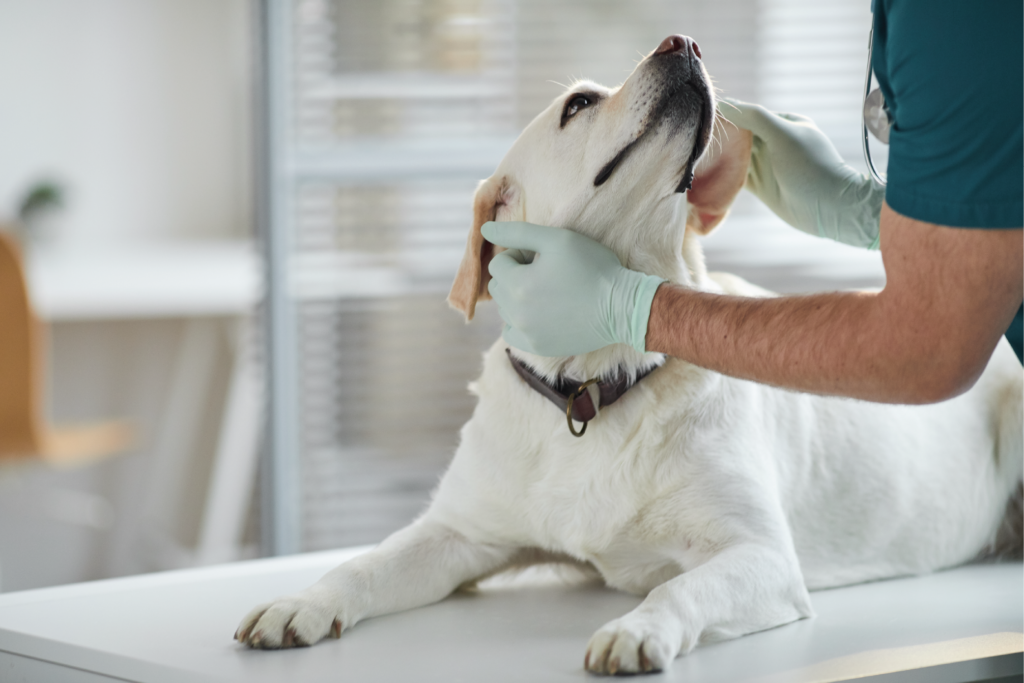The Microbiome in Health & Disease
The microbiome and common diseases in pets
Pets, much like humans, are susceptible to diseases closely linked to the microbiome. Since humans and pets share similar diseases, we can use what we’ve learned from human microbiome research to help guide studies on animal microbiomes to develop more precise diagnoses and treatments. Below are common diseases that are linked to changes in the microbiome in humans and pets.

It’s not unusual for pets to have the same disorders that plague humans—chronic enteropathy (akin to IBD in humans), cancer, and diabetes. We can leverage human microbiome research to improve health conditions in pets.
Gastrointestinal disorders
Gastrointestinal disorders in both humans and pets, such as IBD in humans, chronic enteropathy in cats and dogs, gastroenteritis, and constipation are common and are associated with specific microbial imbalances. IBD in humans, for example, is associated with a decrease in microbial diversity and changes to specific microbes that perform important functions. For instance, many individuals with IBD experience a reduction in obligate anaerobes (microbes that cannot survive in the presence of oxygen) that produce short-chain fatty acids (SCFAs), which have anti-inflammatory properties, and an increase in facultative anaerobes (microbes that can survive in the both the presence and absence of oxygen). Increased oxygen levels in the gut are a marker of inflammation.
Development and aging
In both humans and pets, the microbiome evolves from birth through adulthood, with the most significant changes happening in the first few months of life. At birth, the microbiome starts with only a small number of distinct microbes, but becomes more diverse as time passes. These changes were observed in both pets and humans and are influenced by factors such as birth method (in humans vaginal vs. cesarean births influence which microbes colonize the infant gut), weaning and the introduction of solid foods, and exposure to the environment. Certain microbes and their byproducts observed in puppies and human infants protect against the development of allergies. There are even changes to the microbiome observed later in life in geriatric companion animals. More work is needed to understand the health implications of age-associated microbiome changes in companion animals.
Weight management and obesity
Obesity in pets is a growing concern, as it increases the risk for co-morbidities such as diabetes and kidney disease. Studies have shown that obese pets have different gut microbiome compositions compared to lean ones. By studying the relationship between obesity, the microbiome, and nutrition, we can work towards developing microbiome-targeted diets that support weight loss and reduce the risk for obesity-related health problems.
More than 50% of dogs and 60% of cats are overweight*. Researchers are exploring how to use the microbiome and nutrition to help pets maintain a healthy weight.
*Veterinary Centers of America.
Renal disease
Chronic kidney disease (CKD) in both pets and humans is associated with a disruption to the gut microbiome. Harmful toxins, namely uremic toxins, are created when gut microbes break down certain amino acids. The build-up of these toxins can lead to inflammation and kidney damage. In both companion animals and humans, previous studies demonstrated that adding prebiotic fiber to the diet can encourage the shift toward the metabolism of these fibers and away from the use of amino acids, which reduces uremic toxin production and helps protect the kidneys.
Cancer and immunotherapy
Certain gut bacteria are implicated in promoting the development of cancer in humans through various mechanisms such as microbial metabolite-mediated interactions or the activation of the host’s inflammatory cells. For example, certain strains of Escherichia coli, a bacterium commonly found in the gut, produce a compound called colibactin, which can damage DNA and trigger mutations that may lead to colorectal cancer. On the other hand, researchers have made great strides to understand the microbiome’s role in immunity and how to leverage the microbiome to boost immunotherapy efficacy. While most research on the microbiome’s role in cancer development and treatment has been conducted in humans, we can apply what we’ve learned in human studies to understand the relationship between the microbiome and cancer in companion animals.
Allergies
Previous research in humans has shown that the microbiome in early life can be a predictor of allergy development. However, exactly how the human and companion animal microbiomes function to protect an individual from disease development remains unknown. In addition, disrupted microbial communities on the skin of companion animals can lead to conditions like dermatitis. By studying these microbial communities, we can develop better treatments and preventive measures for allergies and skin health issues in pets.
Oral health
Periodontal diseases (gingivitis and periodontitis) are inflammatory diseases prevalent in cats and dogs. Aside from discomfort, trouble eating, and eventual tissue detachment and tooth loss, periodontal disease can lead to kidney, liver, and heart disease. Both the oral and gut microbiomes are implicated in periodontal disease, with differences in beta diversity and individual microbes observed between animals with disease and healthy controls.
Impact of antibiotics on the gut microbiome
While antibiotics are essential for combating bacterial infections caused by specific microbes, they can also disrupt the beneficial gut microbes in the process. This disruption may lead to the loss of beneficial bacteria and makes the intestinal tract prone to further infections. Such antibiotic-induced imbalances can result in gastrointestinal issues and increased risk of developing other disease conditions such as obesity and allergic diseases.
Avoiding excessive antibiotic use is vital to prevent long-term disruptions in the gut microbiome as well as the creation of antibiotic-resistant bacteria. Since nutrition plays a key role in shaping the gut microbiome, especially in pets who eat relatively consistent diets, targeted food therapies may help to restore the GI microbiome after antibiotic treatments, preventing the opportunity for colonization or emergence of harmful bacteria.

